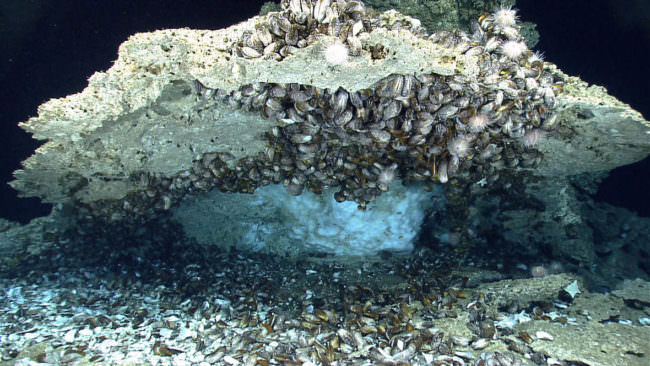
What are methane hydrates and what role could they play in global warming? That’s the question a listener posed this week for the segment Ask a Climatologist.
Brian Brettscheider says methane hydrates are clumps of gas entrapped in water lattice – a kind of ice-like structure — on the continental shelf floor. Some scientists think of these hydrates as a ‘time bomb’ for climate change. Brettschneider says the idea is that warming oceans could eventually release the methane into the atmosphere.
Methane is a greenhouse gas and it’s more potent carbon dioxide.
“Depending on the time scale, it’s 20, even 50 times as potent as carbon dioxide,” he says. “So there’s quite a bit of concern about methane hydrates, that as temperatures rise, the very delicate equilibrium that methane hydrates are in based on temperature and water pressure, that these might be disassociated and released and work their way to the atmosphere and cause kind of a runaway greenhouse gas effect. That’s the concern that people have.”
But, are scientists concerned?
Brettschneider says that the U.S. Geological Survey looked at several studies conducted over many years and their analysis showed that there was less methane hydrate out there than originally thought. These researchers also concluded that the catastrophic potential of methane releases from these sources was much less likely than some people thought. And the time frame for the release of methane hydrates into the atmosphere is in the centuries.
“But along the way most of that will sink back into the sea bed floor,” he says. “So the net effect is it could still be bad, but probably not as bad as we were thinking just even a few years ago.”
Got a question only a climatologist can answer? Go ahead and ask him.
